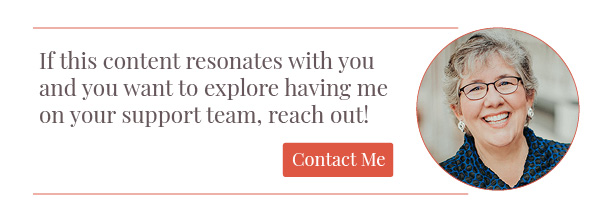The Grown-Ups Are Not Alright: Sounding the Call for ‘Grace’
It’s never been like this. In the 20+ years that I’ve been coaching leaders, every client’s goal has been unique and specific to his/her/their aspirations and context. But then the pandemic hit and the world changed. Overnight, individualized coaching plans evaporated and a universal coaching plan arose: how to lead in my corner of a worldwide pandemic.
Since mid-March, my coaching conversations in any given week have been strikingly similar across clients, with the content evolving in step with the forces and pressures. So far, the narrative has unfolded something like this:
- Week 1: Are we, am I, going to be OK? How do we transform our operations overnight?
- Week 3: I feel like we’re getting a handle on this. We’re inventing new ways of doing business and connecting. It’s actually kind of exciting.
- Week 6: I’m tired. It’s really been a push.
- Week 7-9: It’s exhausting to be on zoom all day. I work more hours now than I did in the office. Work and life are all happening to me at the same time, 24/7.
- Week 10: In addition to handling the COVID mess, how do I respond, as a person and a leader, to the murder of George Floyd? This is huge and I feel … unprepared / enraged / depressed / shocked / frayed / terrified…
- Week 16 and counting: Oh my gosh, we’re going to be in this forever. Can we open up or not? We’ve held conversations about race, but what now? What really changes? I don’t know from one day to the next what the fall looks like for my kids. I’m scared if they go back to school and scared if they don’t.”
Leaders haven’t been able to offload one crisis as the next one comes. The challenges accumulate, each one persisting as the next piles on. This is HARD. I think it helps just to name the truth of that, even if it comes as no surprise.
What has surprised me is that, amidst this pile-up of new and incessant demands, leaders seem to be holding themselves to the same standards of productivity and awesomeness to which they’ve always held themselves. I hear them say things like, “I feel like I should be doing more; I should be having a bigger impact.” “I don’t know what’s wrong with me. I can’t seem to concentrate.” “I can’t believe that I snapped at my kid/spouse/parent at dinner.” “I’m not as tough as I thought I was.”
As if somehow this shouldn’t be taking a toll.
If your child were a competitive runner and the world dumped a backpack of bricks on her back, would you expect her to clock the same times? No. You’d help her understand that she’s running a different race now, that ‘doing her best’ means something very different now. You’d overhaul her goals, training and recovery strategy, equipment, nutritional plan, and support structure. You’d understand if she got testy as she struggled to adapt to the added weight.
Right now, this world is stuffing a grit-storm of bricks into your backpacks. In March, most of us thought that this would be a sprint. We’d gut this COVID thing out for a few months and return to normal. But in the U.S., not only is this sprint turning out to be a marathon, but the American cultural meltdown keeps adding even more bricks as we go.
If you’re going to remain sound for the journey, you’ll need to change your run. And in a grit-show like this, that means amping up the grace toward yourself.
I’m not naive. You may feel very lucky to have this really hard job right now, and it’s not like you can just stop being a parent to your children. It’s not like you’re going to spend a day at the spa (which isn’t open anyway) or take a leave of absence. You may not even be able to take a vacation. But I do know that grit needs grace; challenge needs support. You can gut things out for a while, but it is difficult to keep hauling if you don’t also heal. To quote spiritual teacher Lama Rod Owens, “You have to drink as you pour.”
What about you?
Could you:
- remind yourself that this is objectively difficult?
- take a few minutes each day to note any signs of stress or distress?
- honor those signs as calls for care?
- adjust your expectations to mirror the race you’re running now, as you would for your son or daughter newly competing with a brick backpack?
- let some stuff drop to the ground?
- do a project to a ‘good enough’ standard?
- notice beauty?
- return to that spiritual or physical practice?
- forgive yourself for snapping at someone, and see your irritation as an internal call for care?
- try not to panic if your marriage is feeling the strain?
- go outside for a few minutes, just to feel the sun on your face and witness the beauty of a tree?
- intentionally set aside some time for yourself, even if it’s just 15 minutes here and there?
- do a small technology fast?
- ask for help?
If this content resonates with you and you want to explore having me on your support team,


 Don’t get me wrong. There are many situations where unequivocal public call-outs and fierce corrections are the right response. Harvey Weinstein (who is being arraigned as I write this) and Matt Lauer come to mind. These aren’t well-intentioned guys who are fumbling to get it right. They are drunk on power and heedless of the pain they cause. And while these are very public figures, we’ve known (or known of) those guys in our own lives. Behavior like theirs should be met with righteous grit: unambiguous line-drawing, public outcry, and no-kidding consequences. The act of “calling out” belongs here and I’m all for it.
Don’t get me wrong. There are many situations where unequivocal public call-outs and fierce corrections are the right response. Harvey Weinstein (who is being arraigned as I write this) and Matt Lauer come to mind. These aren’t well-intentioned guys who are fumbling to get it right. They are drunk on power and heedless of the pain they cause. And while these are very public figures, we’ve known (or known of) those guys in our own lives. Behavior like theirs should be met with righteous grit: unambiguous line-drawing, public outcry, and no-kidding consequences. The act of “calling out” belongs here and I’m all for it. But what does “calling someone in“ even mean? What does it look like?
But what does “calling someone in“ even mean? What does it look like? We don’t need to abandon the productive engine of grit. But there’s also a serious imperative to to engage the forces of kindness, connection and care if we’re going to get the outcomes we really want.
We don’t need to abandon the productive engine of grit. But there’s also a serious imperative to to engage the forces of kindness, connection and care if we’re going to get the outcomes we really want.